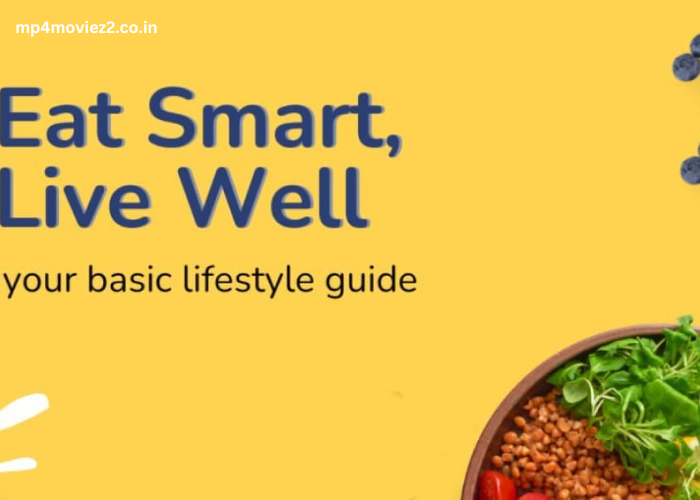As we approach 2025, the focus on health and wellness has shifted from quick fixes to sustainable, smart nutrition choices. The modern world is flooded with convenient, processed food options, but true health lies in making smart decisions about what you eat. Nutrition plays a critical role in your physical health, mental clarity, energy levels, and longevity. In this fast-paced world, it is more important than ever to ensure that your diet supports your body’s needs for optimal performance.
This guide will explore smart nutrition choices for achieving optimal health in 2025, covering the importance of balanced meals, the benefits of superfoods, hydration strategies, and sustainable eating habits. By making informed decisions about your diet, you can improve your overall health and well-being.
Key Points:
- Smart nutrition is about making informed food choices that nourish your body.
- Superfoods and plant-based diets are essential for boosting immunity and energy levels.
- Hydration and sustainable eating are crucial for maintaining long-term health.
What Does Smart Nutrition Look Like in 2025?
Smart nutrition for optimal health involves focusing on nutrient-dense, whole foods, and making choices that will nourish your body without overloading it with excess sugars, fats, and additives. In 2025, the focus is on real, unprocessed foods that help prevent chronic diseases, improve metabolism, and enhance cognitive function.
Key Aspects of Smart Nutrition:
- Fruits and Vegetables: Eating a wide variety of fruits and vegetables provides essential vitamins, antioxidants, and minerals to support immune function and general health.
- Lean Proteins: These are essential for muscle repair and growth. Plant-based proteins, like lentils, quinoa, and beans, are gaining popularity as sustainable and healthy choices.
- Healthy Fats: Omega-3 fatty acids found in foods like salmon, nuts, and flaxseeds are essential for heart health and brain function.
- Whole Grains: Whole grains provide complex carbohydrates that help maintain stable blood sugar levels, improve digestion, and keep energy levels steady throughout the day.
Smart nutrition is about more than just eating nutritious foods—it’s about making conscious decisions that fit your lifestyle, promote wellness, and ensure long-term health. Remember: Smart nutrition is not about perfection, but consistency.
| Food Group | Benefits | Examples |
|---|---|---|
| Fruits & Veggies | Rich in vitamins, antioxidants, and fiber | Blueberries, spinach, carrots |
| Lean Proteins | Supports muscle repair and growth | Chicken, fish, lentils |
| Healthy Fats | Essential for brain and heart health | Avocados, walnuts, olive oil |
| Whole Grains | Improves digestion and maintains steady energy | Quinoa, oats, brown rice |
How Can Superfoods Enhance Your Health in 2025?
Superfoods are nutrient-dense foods that provide high levels of vitamins, minerals, antioxidants, and other beneficial compounds. These foods help combat oxidative stress, boost immunity, and reduce the risk of chronic diseases. Integrating more superfoods into your diet is one of the smartest ways to elevate your nutrition in 2025.
Top Superfoods for Optimal Health:
- Berries: Blueberries, raspberries, and strawberries are packed with antioxidants that help protect cells from damage, improve memory, and reduce inflammation.
- Leafy Greens: Kale, spinach, and arugula are loaded with vitamins, including A, C, and K, and provide essential fiber to support digestion.
- Salmon: Rich in omega-3 fatty acids, salmon helps support heart health, brain function, and reduces inflammation.
- Chia Seeds: Packed with fiber and omega-3 fatty acids, chia seeds help improve digestion and support cardiovascular health.
- Turmeric: Known for its powerful anti-inflammatory properties, turmeric helps reduce the risk of chronic diseases like arthritis and heart disease.
Superfoods are a powerful tool in promoting optimal health in 2025. By regularly incorporating these nutrient-rich foods into your meals, you can enhance your overall wellness and help prevent future health issues. Note: Superfoods should complement, not replace, other healthy foods in your diet.
| Superfood | Benefits | Examples |
|---|---|---|
| Berries | Antioxidants support brain health and reduce inflammation | Blueberries, raspberries, strawberries |
| Leafy Greens | Rich in vitamins, iron, and fiber | Kale, spinach, arugula |
| Salmon | Omega-3 fatty acids reduce inflammation | Wild-caught salmon, mackerel |
| Chia Seeds | Supports digestion and cardiovascular health | Chia seeds, chia pudding |
| Turmeric | Anti-inflammatory, supports immune health | Use in curries, smoothies, or teas |
Why Hydration is Key for Optimal Health in 2025
Water is essential for every function in the body, from digestion to cognitive performance to joint health. Staying hydrated ensures that your body functions at its best, keeping energy levels up and supporting metabolic processes. In 2025, staying hydrated is a key element of smart nutrition.
Hydration Tips for Smart Nutrition:
- Drink Water Consistently: Aim to drink at least 8 glasses of water daily, adjusting for activity levels and climate.
- Hydrating Foods: Include water-rich foods like cucumbers, watermelon, and citrus fruits to boost hydration.
- Limit Sugary Drinks: Sugary beverages can lead to dehydration and energy crashes. Opt for herbal teas, infused water, or coconut water for hydration.
Proper hydration supports your overall health by aiding digestion, preventing fatigue, improving skin health, and optimizing cognitive function. Reminder: Always carry a water bottle with you to ensure you stay hydrated throughout the day.
| Hydration Source | Benefits | Examples |
|---|---|---|
| Water | Keeps the body hydrated, aids in digestion | Plain water, herbal teas |
| Hydrating Foods | Helps replenish fluids and provide nutrients | Watermelon, cucumbers, oranges |
| Limit Sugary Drinks | Prevents dehydration and energy crashes | Herbal tea, infused water, coconut water |
How Can Sustainable Eating Improve Your Health in 2025?
Sustainable eating involves making food choices that benefit your health while also reducing your environmental impact. Sustainable diets focus on plant-based foods, reducing food waste, and choosing locally sourced ingredients whenever possible. These habits not only improve your health but also promote a more sustainable food system.
Benefits of Sustainable Eating:
- Environmental Benefits: Choosing plant-based options and reducing food waste helps minimize your ecological footprint.
- Improved Health: Plant-based diets are linked to lower rates of chronic diseases such as heart disease, diabetes, and cancer.
- Supports Local Economies: Eating locally grown foods supports farmers and reduces the carbon emissions associated with transporting food over long distances.
Sustainable eating is not just about what you eat, but how it impacts the planet and future generations. By making mindful, eco-friendly choices, you can support both your health and the environment. Note: Sustainable eating should be about finding balance, not perfection.
Conclusion: Making Smart Nutrition Choices for 2025
As we move into 2025, making smart nutrition choices is essential for achieving and maintaining optimal health. By focusing on whole, nutrient-dense foods, incorporating superfoods, staying hydrated, and adopting sustainable eating habits, you can support your body’s long-term health and well-being.
Smart nutrition is about making choices that nourish your body and promote overall wellness. By taking small steps towards a balanced, nutritious diet, you’ll be better equipped to thrive in the years ahead. Start implementing these smart nutrition habits today, and enjoy the benefits of optimal health in 2025 and beyond.
FAQ’s
- What are some examples of smart nutrition choices for 2025? Smart choices include eating more plant-based foods, incorporating superfoods like berries and leafy greens, and staying hydrated with water and herbal teas.
- Why are superfoods important for health in 2025? Superfoods are packed with antioxidants, vitamins, and minerals that support the immune system, reduce inflammation, and promote overall well-being.
- How much water should I drink for optimal health? Aim for at least 8 glasses of water daily, but adjust for activity levels and environmental factors.
- What are the benefits of sustainable eating? Sustainable eating supports both your health and the environment by reducing food waste, lowering carbon emissions, and promoting plant-based foods.
- How can I incorporate more hydration into my diet? Drink plenty of water, eat water-rich foods like fruits and vegetables, and avoid sugary beverages to stay hydrated throughout the day.




